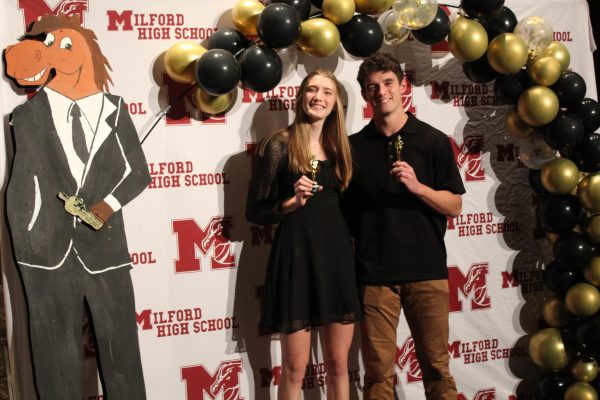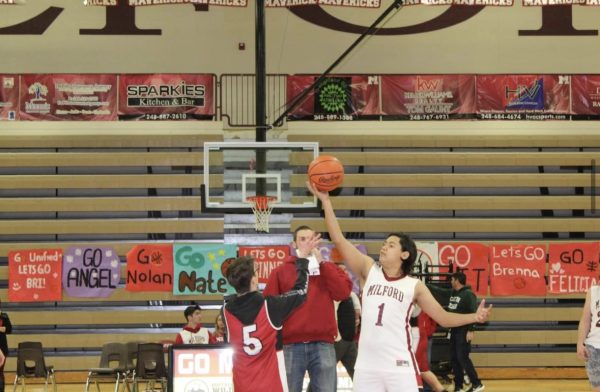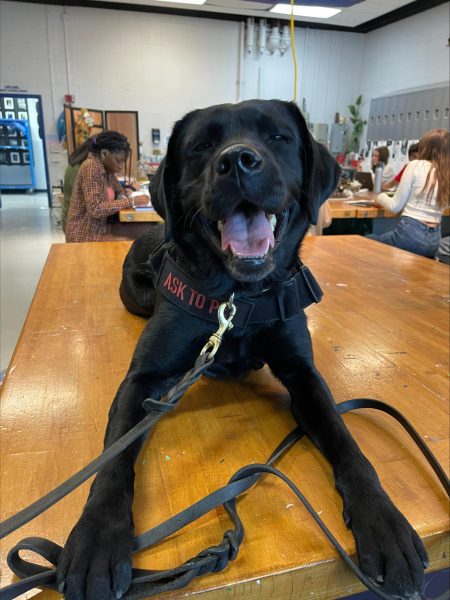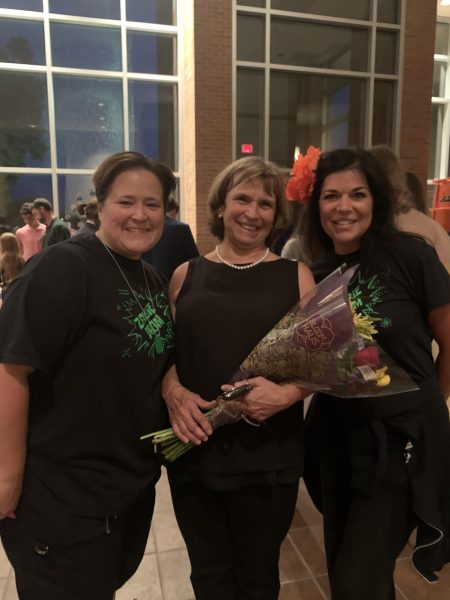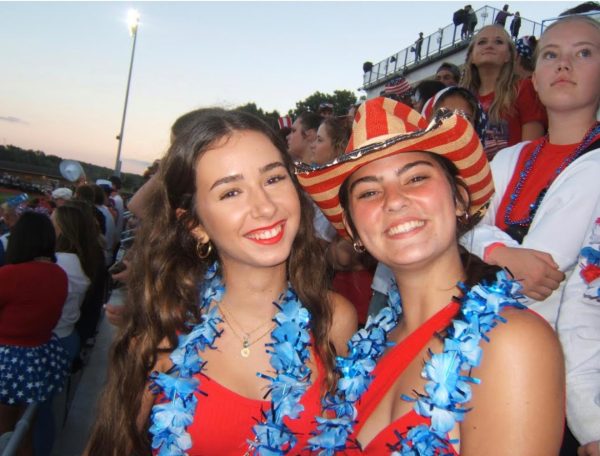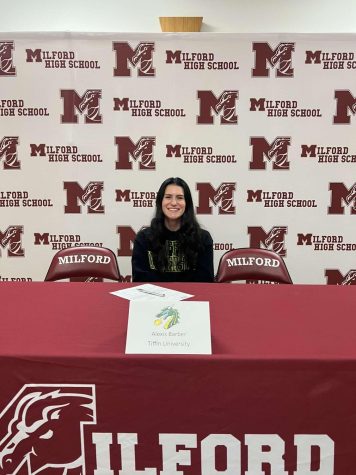Catching up with Francesca Audia: MHS Alumna seeks higher education abroad
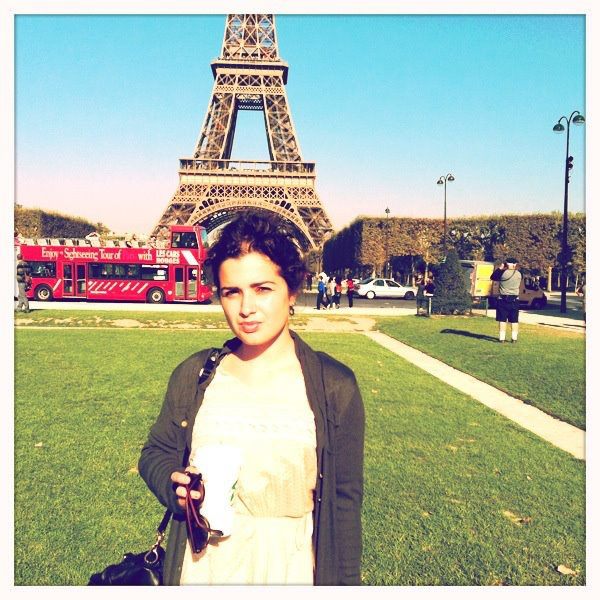
The Reims campus at Science Po Paris where Audia studies is about 45 minutes away from Paris, allowing her to go to the historical city any day of the week.
March 12, 2012
For many, Paris, France is the ultimate travel destination. Tourists everywhere yearn to shop in one of the fashion capitals of the world, eat croissant in French cafes, see sites such as the Eiffel Towerand the Louvre, and explore the historical city.
But what if this dream vacation was the everyday life? It is, for MHS Alumna Francesca Audia. Audia—who graduated in 2011—is of the handful of students who took advantage of the opportunity to study in a different country, learning not only new academic material, but a new language and a new way of life.
“[It is] an interesting place for an 18-year-old to live alone, to say the least!” Audia said.
Audia is enrolled in a unique program that launched last year—making Audia one of the first students to ever participate in this outstanding opportunity. The program is an association between Columbia University, an Ivy League school, and Institut d’Études Politiques de Paris (Sciences Po Paris), a grand école. Audia will study in France for two years and then complete the final two years at Columbia University in New York City. Once Audia graduates from Columbia, she will receive two Bachelor of Arts degrees.
Audia is one of 30 students to have been selected for this chance to achieve a thorough education while gaining experience by way of European travels. The undergraduate students are dispersed among Science Po’s four satellite campuses in Le Havre, Menton, Paris, and Reims. Audia currently attends the Reimscampus, located about 45 minutes away from Parisby high-speed train. One of the perks of living in Reimsis the mystery beneath the city. Reims is the capital of the champagne region, Champagne-Ardenne. Under the city, millions of bottles of champagne are stored in caves.
“I recently rented a new apartment and one of the papers I had to sign was about liability in case the caves collapse and my building falls,” Audia said. “Scary, but kind of cool at the same time!”
Audia has had to adjust to living on her own in anew city, as all college freshmen must. However, she also has had to adapt to a new culture altogether.
“There are some distinctly French things that I’ve sort of taken on—like hand gestures, mannerisms, style—without realizing it,” Audia stated. “It’s crazy how that happens!”
Time is budgeted differently in France than it is in the States.
“Life in France is much slower than in the US,” Audia said.
Most stores and businesses close from 1:30 to 3:30 p.m. for lunch and 5:30 p.m. is the standard closing time of non-grocery stores. Grocery stores typically close at 8 p.m. These adjustments may be perceived as inconveniences to Americans who are used to stores that are open all day and late into the evening.
“Living in France has made me more open-minded, and at the same time it has made me realize how much we take for granted inAmericain terms of workers’ mentality,” Audia stated. “America isn’t a lazy country after all!”
In addition, Audia has noticed vast dietary differences between the two countries.
“I’ve never eaten so much bread and camembert (a white cheese),” Audia mentioned. “The French college diet: wine, bread and cheese. I’m only exaggerating a bit.”
Not only has Audia been exposed to the French culture, but she has experienced that of other nations as well. Living in France has given Audia the opportunity to travel the European continent.
“My college experience has been surreal,” Audia stated. “I had the opportunity to practice my German when I visited my family in Bavaria for fall break, I’m going toPortugalfor spring break, [and] I can go toParisjust for lunch.”
Despite the unique opportunities that Audia has been presented with, she has not been deprived of participating in activities that all college students experience. Weekdays include approximately 25 hours of class and sleepless nights of studying, essay-writing, and preparing for exams. On the weekends, Audia plays on her school’s rugby team and goes out on the town with friends.
“There’s the typical college experience interlaced with the abnormal experiences,” Audia explained.
Audia recommends the Dual BA program a tColumbia to any academically superb students who are interested in exploring a new way of life.
“It’s a rewarding experience, to say the least,” Audia affirmed. “I see the good, and I see the bad, and I see everything in between. I see how similar two cultures can be, but how radically different they can be.”
Audia is working toward a degree in law and political science. She hopes to achieve a 4.0 GPA at Columbia and attend either Harvard or Columbia again for graduate school, where she would get a doctorate degree in international law. She plans to return toEurope upon the culmination of her studies. Audia is even trying to get an Italian passport to facilitate her travels abroad.
The Dual BA program at Columbia and Science Po Paris is highly competitive and demands academic excellence and a consistently exceptional high school performance. Being in association with an Ivy League university, the Dual BA program is reserved for students with high ACT/SAT scores, impressive grades, active community involvement, and strong written and verbal communication skills.
“I guess you could say it’s a competitive program,” Audia said. “To be honest, I thought that actually being accepted into the program was an incredibly unrealistic dream. But amazing things happen sometimes.”
Audia encourages high school students to reach for academically rigorous colleges, despite any apparent doubts.
“I’d say that consistently high academic performance, upkeep of academic integrity and a focus on one’s goal is key,” Audia affirmed. “Don’t be afraid to dream big.”
